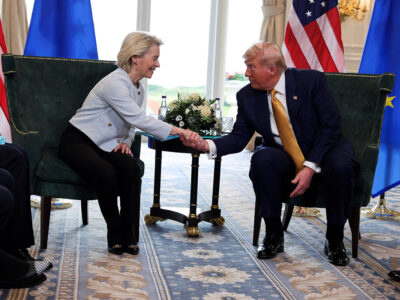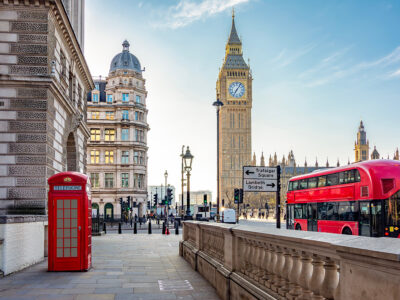U.S. President Donald Trump said on Wednesday he was “very happy” with a trade deal that restored a fragile truce in the U.S.-China trade war, a day after negotiators from Washington and Beijing agreed on a framework covering tariff rates.
“We made a great deal with China. We’re very happy with it,” Trump told reporters before a performance at Washington’s Kennedy Center on Wednesday evening. “We have everything we need, and we’re going to do very well with it. And hopefully they are too.”
Earlier, Trump used his Truth Social platform to announce the agreement was “done, subject to final approval from President Xi and me.”
The deal involves China supplying rare earths and magnets to U.S. companies while the United States would abandon threats to revoke visas for Chinese students.
“Full magnets and any necessary rare earths will be supplied, up front, by China. Likewise, we will provide to China what was agreed to, including Chinese students using our colleges and universities,” Trump wrote.
The U.S. president stated that America would have tariffs of 55 per cent on Chinese goods. A White House official later clarified this figure represents the sum of a baseline 10 per cent “reciprocal” tariff on goods from nearly all trading partners, 20 per cent on Chinese imports related to fentanyl concerns, and pre-existing 25 per cent levies from Trump’s first term. China’s tariffs on U.S. imports would remain at 10 per cent.
U.S. Commerce Secretary Howard Lutnick confirmed the 55 per cent rate is fixed and unalterable. “You can definitely say that,” he told CNBC on Wednesday when asked if tariff levels on China would not change.
The negotiations were aimed at cooling tensions between the world’s two largest economies after a rapid escalation of tariffs earlier this year nearly paralysed trade between them.
The Geneva deal reached last month had faltered over China’s continued curbs on critical minerals exports, prompting the Trump administration to respond with export controls preventing shipments of semiconductor design software, jet engines for Chinese-made planes and other goods to China.
Top officials from both countries convened for urgent discussions in London beginning Monday. These talks were arranged following a telephone conversation between Trump and Xi last week, which helped resolve tensions that had emerged shortly after their initial agreement in Geneva.
“We have reached a framework to implement the Geneva consensus and the call between the two presidents,” Lutnick told reporters after the London talks. Both sides will now present the framework to their respective presidents for approvals, he added.
Chinese Vice Commerce Minister Li Chenggang also confirmed a trade framework had been reached in principle.
U.S. Treasury Secretary Scott Bessent told lawmakers that the deal would not reduce U.S. export restrictions on high-end artificial intelligence chips in exchange for access to Chinese rare earths.
“There is no quid pro quo in terms of chips for rare earths,” Bessent said during a U.S. Senate Appropriations subcommittee hearing.
The London talks were triggered partly by U.S. concerns about China’s export restrictions on rare earth minerals, which are essential for manufacturing everything from smartphones to electric vehicles.
U.S. stocks drifted lower on Wednesday but have recouped most of the losses suffered earlier in the spring during Trump’s wave of tariff announcements.
In May, a temporary truce reached in Geneva brought Trump’s new U.S. tariffs on Chinese products down from 145 per cent to 30 per cent, while Beijing slashed levies on U.S. imports to 10 per cent and promised to lift barriers on critical mineral exports.
It was not immediately clear from Trump’s comments where things stood regarding the timeline for a more comprehensive deal that was reached last month in Geneva, which had set a deadline of August 10.









